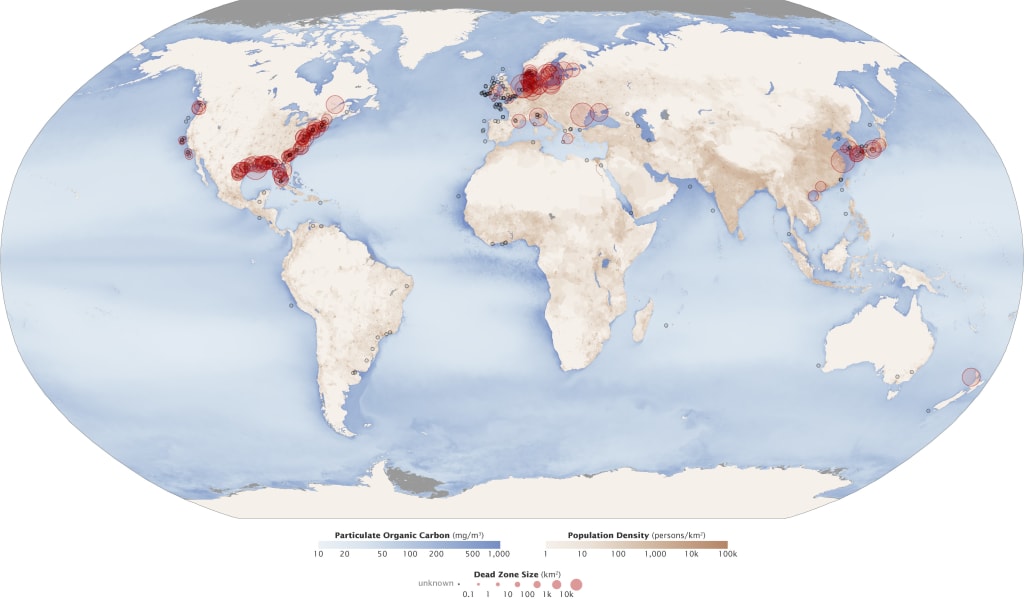Don't Have a Cow, Ditch the Beef!
Plant-based diets: Better for you, better for the planet, and better for the animals, according to recent scientific research.

Scientists are asking the question, but what is the answer?
A subject that has everybody talking—from biologists to economists, everyone has a stake in what’s going to happen to planet Earth over the coming decades. There is much debate over the expected severity of climate change, but it can be agreed humans are influencing the speed in which cyclic warming and cooling are occurring.
The main driver of climate change is the increase in global greenhouse gas emissions. Though this is not new information, it may be time for us to alter our approach for reducing humanity’s carbon footprint. A survey conducted by the Glass Packaging Institute found those born post-1978 are more concerned about health and the environment than any other age group. However, they are also the least likely to sort through rubbish and separate recyclables, and the least likely to take steps toward saving energy in the home.
We are often told the best way to reduce our individual footprint is to opt for public transport and switch off appliances rather than leaving them on standby. What we are not told, is not only is animal agriculture a likely suspect for ocean biodiversity loss, it’s also responsible for up to 18 percent of total global human emissions (Animal, doi:10.1017/S1751731109004662). That is more than the global emissions from all transportation… every car, plane, train, boat, motorcycle, bus and lorry in the entire world combined (around 13 percent). This implies that a change in diet may lessen your footprint even more than ditching the car! A far more attractive and reasonable lifestyle change for daily commuters. Why is it then, this information is not common knowledge? Perhaps it is because animal agriculture is responsible for 40% of the global value of agricultural output, having a massive economic stake. Perhaps it is because livestock covers over 45% of the earth’s total land. Or perhaps, are we just not willing to listen? Just a little food for thought.
That's all well and good, but what about my health?

The most recent food pyramid, outlining the basic food groups that should be consumed each day and in what quantities. Do you find yourself fitting into these guidelines? Two servings of meat equates to 50-75g and a serving of cheese is 25g. | SAFEFOOD.EU | Healthy Eating |
Since first entering education, we are taught basic information on health and wellbeing. We learn meat, dairy, and eggs are necessary for our bodies to function correctly. However, scientists think that this may not be the case after all. The NHS are discouraging consuming red meats and processed meats, like sausages, bacon, and ham, due to research finding that eating more than the recommended daily allowance increases risk of colorectal cancer by 25 percent (International Journal of Cancer, doi.org/10.1002/ijc.10126). Even more shocking, some medical schools give their students a total of just two hours nutritional training. This leaves many health problems that may be resolved with a change in diet to be disregarded when visiting the GP. Medical professionals, beware!
That glass of milk may not be as pure and healthy as it looks, either. Scientists have found an association between dairy consumption and prostate and breast cancer, though there is conflicting evidence of this. Regardless, there’s an undeniable link between over-consumption of dairy and obesity due to saturated fat. Not to mention the presence of somatic cells in dairy products. These sound pretty innocent, but are actually puss cells or inflammatory immune cells caused by mastitis. The British Mastitis Conference have outlined it as a huge economic issue. Any mother who has suffered from mastitis will understand how painful and uncomfortable it is. In 2016, researchers found on average 35 out of 100 cows suffered from mastitis. That doesn’t sound like much, but in 2016, there were 1.898 million dairy cows in the UK. That’s 664,300 cows in one year, producing on average 7,445 litres of milk. I did the maths, that’s just short of 5 billion litres of milk containing mastitis cells on British shelves in 2016. This information was acquired through the Agriculture and Horticulture Development Board, AHDB. Though milk goes through pasteurisation to remove pathogens, it has no effect on the toxins produced by mastitis (Asian-Australasian Journal of Animal Science, doi.org/10.5713/ajas.2011.10233).
So, plant-based is better for my health and helps fight climate change, but what about bacon? I couldn't give that up!

The latest documentary revealing the conditions of UK farmed animals. If watching this does not make you consider ditching meat, I don’t know what will. It is truly heart-breaking.
| LANDOFHOPEANDGLORY.ORG |
Anyone who has studied Animal Behaviour and Welfare will be aware, the guidelines given to farmers by government for keeping their animals for the sake of profit and optimality is inherently wrong. Confined spaces, little to no social activity or stimuli, only to have their lives cut short through slaughter. If it were dogs, cats or—dare I say it—humans being housed in current facilities, there would be social uproar. All common livestock species, such as chickens, cows, and pigs, are social animals with complex relationships and behaviour, some having intelligence that matches a two-year-old human.
“Over a billion farmed animals in Britain are killed each year in slaughterhouses. This includes over 10 million pigs, 15 million sheep, 16 million turkeys, 14 million ducks and geese, 975 million broiler chickens, 40 million egg-laying hens, and over 2.6 million cattle.” -DEFRA, 2016.
It’s not just the farmed animals that would benefit from choosing a plant-based lifestyle, but all of the most vulnerable and arguably, most important species would also. According to Conservation International, 80% of global deforestation is due to animal agriculture. Just behind is mining, infrastructure and urban expansion. Therefore, if you believe that current environmental issues are due to an increase in human population, you’d be right. But it has more to do with our cultural and dietary choices than the actual amount of land a person needs to live. Regardless of this, or of how the animals are treated, is it possible to say we treat animals ethically if they are ultimately murdered for us to enjoy 15 minutes of satisfaction at each meal? In the immortal words of Sir Paul McCartney:
“If slaughterhouses had glass walls, everyone would be vegetarian”.
Now it's time to ask yourself the question: Is it truly worth it?

Image highlighting the primary issue with a “carnist” diet—meat production is a waste of resources. Despite what some industries would like you to believe, meat isn’t good for the environment or your health (in large quantities). With land use issues and countries struggling with water crises, it makes sense to ditch the beef.
| DAILY MIRROR | 2014 |

A graph taken from a scientific paper, evaluating the environmental impact of various dietary patterns combined with differences in food production systems. Based on this research, I think it’s safe to say that a vegan diet is a better use of resources and has less of an impact on human health and the environment.
| EUROPEAN JOURNAL OF CLINICAL NUTRITION | DOI:10.1038/sj.ejcn.1602522 |
I’m hoping by this point in the article you’re beginning to see what I see and asking yourself the hard question. Is eating animal products truly worth it?
Climate change, deforestation, public health, animal welfare, overfishing, ocean pollution, and the loss of global biodiversity. These are the issues that pose the biggest threat to humanity in the 21st century, according to the Royal Geographic Society. All of these negative environmental, social, political and economic issues can be helped through scientific research. What is the science telling us? That a wholefood, plant-based diet is not only the healthiest for our individual biomes, but what’s best for the global biome we all share.
About the Creator
Emily Butterfly
I'm a soon-to-be Zoology graduate with a drive to make a difference. Environmentalist, sing-songerist, biologist, plant-based and consumer conscious. This box is too small and my dreams are too big. 🎼 Everybody's free (to wear sunscreen)






Comments
There are no comments for this story
Be the first to respond and start the conversation.